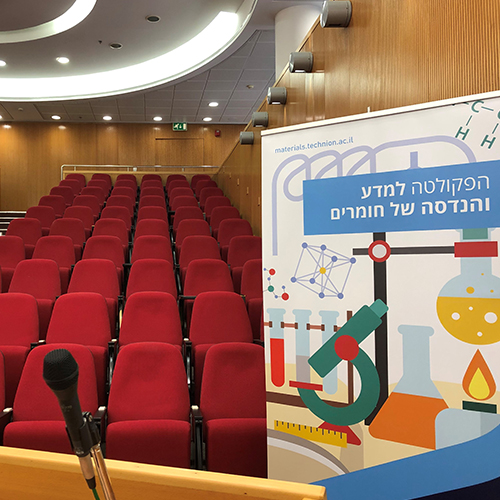
Mrs. Aya Fadool - M.Sc. candidate
03/03/2024
David Wang Auditorium, 3rd floor Dalia Meidan Bldg.
14:30
Organic electrochemical transistors (OECTs) are building block devices for applications in a variety of fields, including energy storage, mechanical actuators, sensors etc. The OECT channel is composed of an organic mixed ionic-electronic conductor (OMIECs), generally a conjugated semiconducting polymer with polar side groups that support ionic transport. Small molecule OMIECs offer advantages in terms of synthesis, purification, and reproducibility, but have been scarcely integrated into OECTs. In this research we explored a series of new conjugated small molecule mixed conductors and their integration into p-type OECT applications aiming to establish design principles for the next generation of OECT materials. We studied the electrochemical properties of a series of thiophene-based small molecule films using cyclic voltammetry (CV) and spectroelectrochemistry (SEC). The CV showed that the redox potentials of all films are in the selected window. However, the electrochemical doping, which requires ion mobility into and out of the film, is fully reversible in one film only. In one case, the films were too dense for ion penetration, while in another, doping was irreversible. The selected films were integrated into OECT structures and cycled in aqueous solution leading to p-type device performance. To improve the stability of the films and allow ambipolar injection, the small molecule was blended with a commercially available n-type polymer. We studied the effects of blend composition and thermal treatment on the film morphology and device performance.


